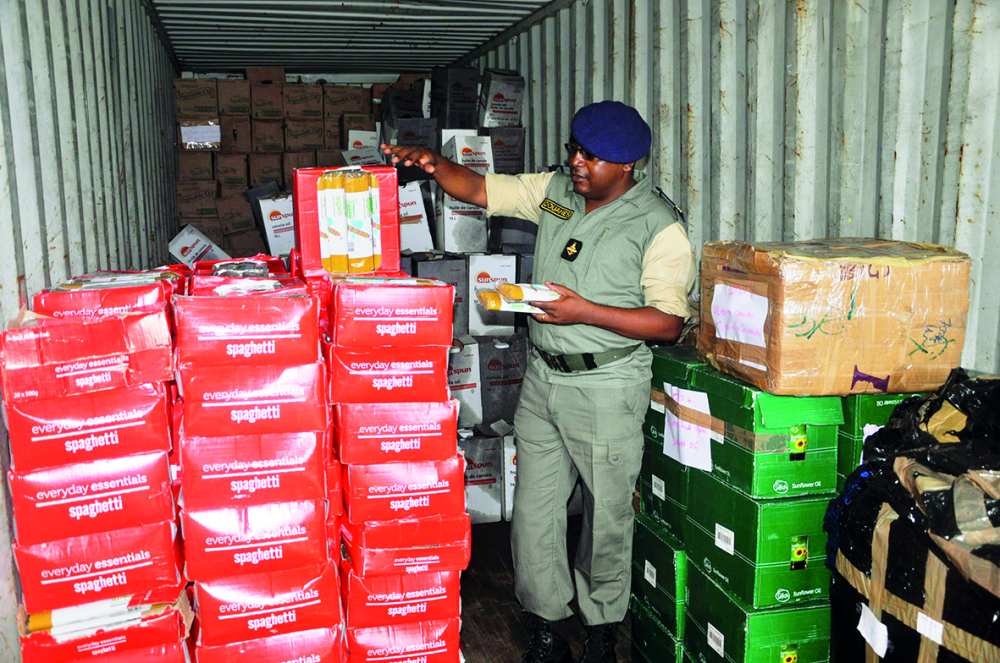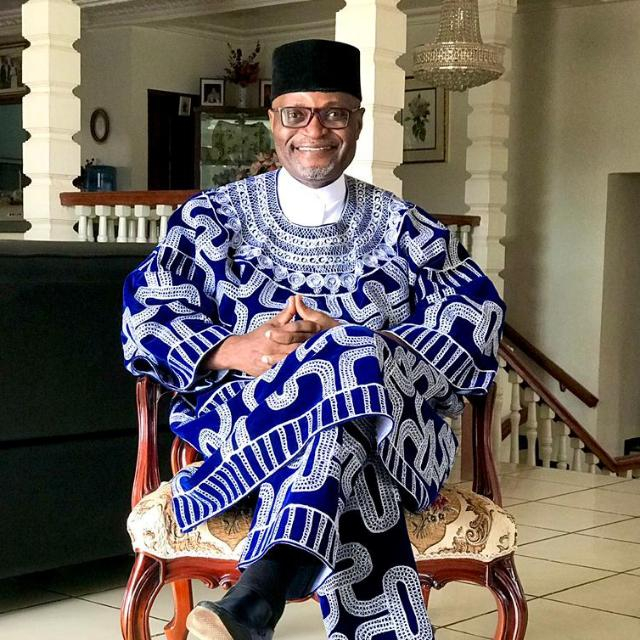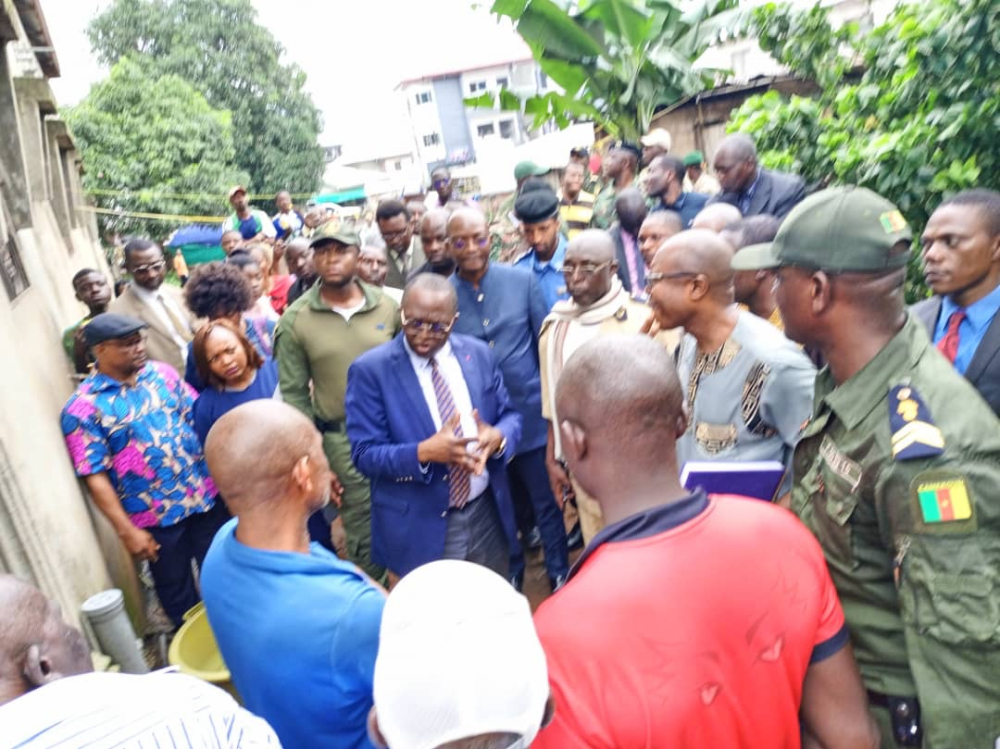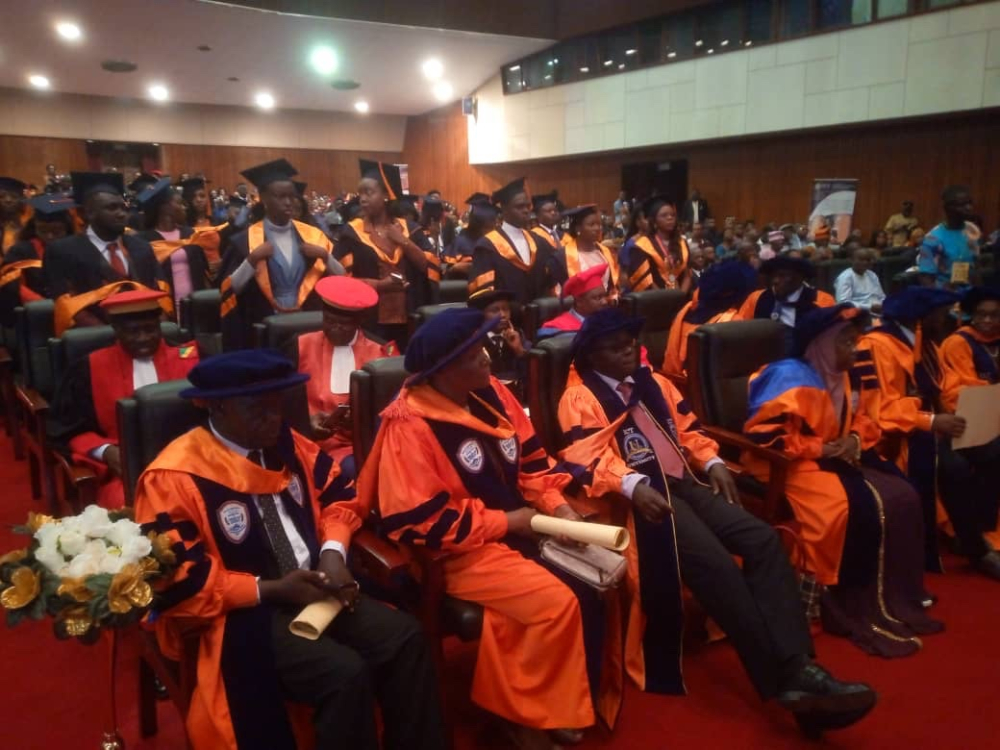Cameroon: How Customs Services Lose Billions Yearly To Illegal Trade
- by Jator NJENYU
- 26 Jul 2023 18:39
- 0 likes

The textile, mobile telephones, hydrocarbons, medicines and beverages sectors are the most affected by smuggling and counterfeiting in the North Region of Cameroon
Despite efforts made by authorities to fight smuggling and counterfeiting, which have negative impacts on national economy and consumers’ health, the practice continues to gain grounds.
Local news sources say although telephones of different brands are accessible, most are of a dubious origin. “A counterfeit Samsung telephone sells between FCFA 45,000 and FCFA 50,000. The same original brand sells at FCFA 150,000” at the Garoua main market.
However, this seems to be a boon for consumers according to a local newspaper report. “I prefer a counterfeit phone because it costs less than the original phone,” says Aminatou Haoua, a housewife in Garoua.
Like it is in the Garoua main market, all other sales point in the region is experiencing an overflow of contraband and counterfeit products. "In the market, the Super Wax from Nigeria costs FCFA 30,000, yet the same original wax is sold in our shops at FCFA 75,000," laments Chimène Doudou, manager of a shop in the small Yelwa market in Garoua.
According to Alhadji Oumarou Djidda, President of the Beac Market in Garoua, these counterfeit items are marketed in all sales sectors: textiles, hydrocarbons, beverages, telephony, pharmaceuticals and many others mostly coming from Nigeria. “Medicines, textiles, telephones as well as electronic and electrical devices regularly come from India, China and Dubai. Equatorial Guinea supplies our markets with liqueurs and wines,” underlines this seller who also notes that certain products such as soft drinks, mineral water, pens, are locally manufactured in clandestine factories.
According to Hassan Oumarou, a driver who masters the circuit of illicit and counterfeit products, goods coming from Nigeria especially on board trucks, motorcycles or small vehicles, pass through Barndaké in the Benue Division to the town of Garoua. “In the rainy season, we cross the border with canoes. In the dry season, the journey is less strenuous as we travel with our cars to Nigeria. I can drive three hours from Mubi in Nigeria to the city of Garoua. Once in Garoua, the products are distributed in the markets,” the driver explains.
Administrative Measures
According to Alim Bourfan Modeste, Head of the Regional Fraud Control and Repression Brigade in the North Regional Delegation of Trade, the most consumed contraband and counterfeit products in the North in 2020 are respectively textiles, medicines, telephones, drinks and fuel.
“This is explained by the fact that this region shares borders with a neighbouring country which is an economic giant in Africa. The porosity of the borders also favours this scourge,” explains Dahirou, North Regional Delegate of Trade. He said smuggled or counterfeited products are sold openly and others on the black market.
“If we take, for example the telephone sector, counterfeit telephones are on all IT stalls in the Garoua main market. It takes a good mastery of the qualities of the products to be able to distinguish which ones are counterfeit and which ones are not,” notes Alim Bourfan Modeste. He explains that adventurers of this illegal trade target products that are easy to sell, especially those that are less expensive than the original products.
The business is indeed flourishing says Alim Maliki, logistics manager at the land freight office in Garoua: “A lot of people earn their living through this practice which is growing in intensity on the various corridors between Cameroon and Nigeria, and contributes to a great revenue loss.”
Residents testify that the truck loads always exceed the standards and there are no truck weigh stations on the corridor, reason for the constant damages caused on the roads.
According to Taoyang Germain, economist and lecturer at the University of Garoua, "the abundance of smuggled or counterfeit products in the markets of the region sufficiently demonstrates weaknesses in the total control of the border commercial areas."
However, the Regional Delegate of Trade explains that the Ministry of Trade applies the framework law on consumer protection, including Law no. 2011/012 of May 16, 2011 and Law no. 2015/018 of December 21, 2015. These two laws authorise the Ministry to take repressive measures on all who practice smuggling and counterfeiting.
"The Ministry of Trade protects the economy as well as consumers by fighting so that counterfeit and contraband products do not find their way into the local market," notes Alim Bourfan Modeste.
According to the Regional Delegate of Public Security of the North, Lenye Jean Apôtre, and the Assistant Commander of the North Gendarmerie Legion, Lieutenant-Colonel Serge Nguetna, raids are made on the ground and in the border areas to track down these scammers. "The elements installed in the border posts where the traffic of contraband is frequent, were instructed to seize these products and to inform the hierarchy in order to discourage smugglers," Lenye Jean Apôtre said. Unfortunately, he laments, illegal border crossings at several crossings and traffickers use other routes to circumvent security checkpoints, especially in the dry season when they create parallel routes in this semi-desert area.”
Customs Clarification
“You see, for example, a tax is levied on fuel from Nigeria because Cameroon has not signed any agreement with Nigeria for the import of hydrocarbons. Customs therefore considers that smuggling concerns products that end up in the territory without a bilateral agreement between our country and another State. Unfortunately, many smugglers bypass customs posts to avoid paying these taxes,” Raymond Touagai, North Region Head of Customs, notes.
He clarifies that, “Customs plays a role in controlling the regulation of trade at the international level and it has the duty to offer incentive measures for the consumption and export of local products. A tax is therefore imposed on imported products which could threaten the sale of national products in the local market. It is for this reason that even contraband products such as loincloths or fuel pay taxes.”
Financial Consequences
The bypassing of customs posts by smugglers, a practice that is becoming the rule in this part of Cameroon, "causes the loss of customs revenue," indicates the Customs Sector of the North Region. About FCFA 8 billion an d FCFA 9 billion are lost per year respectively in the textiles and pharmaceuticals sectors.
“Smuggling and counterfeiting are the cause of enormous financial loss for the Cameroonian economy. A study by the Operation Stop Illicit Trade (HALCOMI) presented in December 2018 by Cameroonian customs, showed that this phenomenon causes the country to lose more than FCFA 250 billion each year. The phenomenon is not only in the North, it is also experienced in other regions of the country,” Taoyang Germain says.
Threats To Health
Besides the economic aspect, health also pays a heavy price. “We found that out of 104 anti-malaria drugs circulating in the region, 38 contain no active substance and therefore have no effect on patients. These counterfeit medicines can be without active ingredient, with a reduced active ingredient, or even contain toxic substances,” Dr. Moutsena Tchinakoué, Director of the De Lainde District Medical Centre in Garoua, highlighted.
Dr. Ina Amanda, Dermatologist at the Regional Hospital of Figuil in the Mayo Louti Division, points out that, "The counterfeit oils that we put on our bodies can in the long run create cancers in us. Counterfeit food products can also be harmful to us because the quality is always questionable.”
Despite all these risks, Isaac Hempo, fuel wholesaler in Mayo Rey maintains that contraband or counterfeit products fill a certain void left by authentic products. “In the Faro Division and Mayo-Rey, for example, where there is practically no filling station, everyone consumes smuggled fuel. Otherwise, you have to park the vehicle. It is this fuel from the neighbouring country that everyone uses,” says Hempo.








Comments